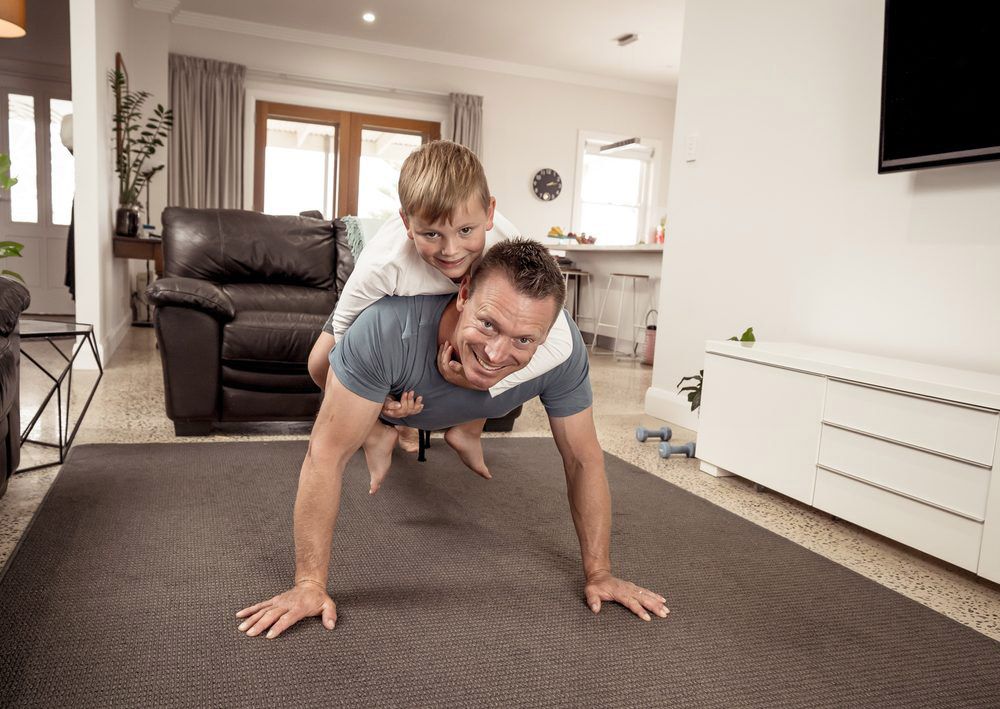Exercise is one of the best ways to improve your health and not just physically but mentally too. In fact, exercise is so good for the brain that it is fondly referred to as “Brain-ercise”. Some of the benefits of exercise include decreasing stress, anxiety, and depression, helping you sleep better and keeping your mind sharp by creating new neural pathways and promoting energy creation.
The brain is one of the most important organs in your body, controlling everything from breathing to movement. And when you exercise, you brain thanks you by being more efficient in these jobs! Exercise also has positive effects on your mood and mental health. Studies have shown that regular exercisers are less likely to suffer from stress, depression and anxiety.
Exercise even has beneficial effects on the brain’s structure, for instant the hippocampus (important for memory) and the cerebellum (responsible for motor control). Exercise also stimulates neurogenesis – the birth of new brain cells as well as strengthens existing connections between neurons, speeding up how quickly messages are sent back and forth between parts of your brain. These changes are what lead to improved memory, better mood and less stress! If that is not enough, people who exercise have far healthier mitochondria. These little guys are the energy suppliers of the body. As such, they are essential for life. Mitochondria provide most of the cell’s ATP (adenosine triphosphate), which is used to power processes in our cells. So far, that is a lot of bang for your buck, from healthier brain structures, to better energy production, to more stable moods. Now lets look at sleep and reactivity to stress.
Exercise and sleep have a very close relationship. Exercise is known to help us fall asleep more quickly in addition to improving overall sleep quality. This is done via a few mechanisms. Firstly, through boosting melatonin (a hormone that plays a role in regulating the body’s sleep-wake cycles) in the blood stream. Secondly physical activity helps to reduce stress, which can be a huge factor in poor sleeping habits. The endorphins released during exercise help regulate how we feel and we are able to go to bed more “emotionally processed”. Exercise is also great for getting rid of all that pent-up frustration we often keep to ourselves – the kind that we sometimes redirect into tossing and turning around at night.
Finally, exercise plays a vital role in mitigating stress, which is a big plus considering that chronic stress can lead to all sorts of serious health problems. When you exercise, your body releases a compound known as brain-derived neurotrophic factor (BDNF), which increases the production of new cells in your brain. This is especially important since stress can be a huge factor in slowing down both neurogenesis (the development of new neurons) and connections between our nerve cells. Exercise also helps us fight off stress by raising levels of certain neurotransmitters, particularly dopamine and serotonin , great for a sense of wellbeing and mood regulation. Lastly exercise reduces cortisol , the stress hormone.
The benefits of exercise are undeniable. If you are new to moving your body regularly, here are 8 ideas to get you started.
Start slow and easy – this builds success in. Give yourself time to build up to your end goal. Exercise is meant to be enjoyable so make sure it’s achievable so that you can enjoy yourself and feel proud.
- Know your limits – If you don’t know where to start, let someone assess your current fitness level and make recommendations.
- Find something fun – One of the best ways to continue doing what you are doing is to have fun. It’s hard work, everybody knows that. If you don’t enjoy it however then you will tend to lose motivation and quit, but if you do enjoy something it’ll become a habit more easily.
- Remember why – Don’t forget the reason that got you started. Was it to lose weight? Was it for longevity? If you’re struggling then remind yourself of why you started.
- Be Patient – Rome wasn’t built in a day so don’t expect to be in tip-top shape today. Be patient with yourself.
- Buddy up – Finding someone else who is doing what you’re doing or trying to do it can help tremendously as a way to keep yourself motivated and focused.
- Routine – When it comes to your health and fitness, having a routine that you can fall back on when motivation dips is important
- Have Fun – If you’re not having fun with your exercise, you are less likely to keep at it. Pick the style of exercise that you find enjoyable.
Remember, it doesn’t matter where you are starting. Every day gives you the chance to build the life you want and prioritising exercise is a wonderful gift to give yourself.




















